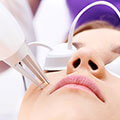
Best Doctor For Rheumatoid Arthritis Treatment
Rheumatoid arthritis (RA) is an inflammatory arthritis in which joints of the hands and feet, are inflamed, which results in joint pains, swelling and frequent destruction of joints. Small joints of the limbs become painful and have stiffness which persists for about 60 minutes on awakening and after inactivity. Due to weakness, fever and damage to other organs may also occur. RA affects both sides of the body. For example, if a joint is affected in one arm or leg then a similar joint of the other arm or leg will be affected too. This is one of the ways RA is identified by the doctors from other forms of arthritis like Osteoarthritis (OA).
Rheumatoid arthritis develops in about 1% in the whole world’s population. Women are affected 2 times more than men. It appears in the age group between 35 to 50years. A similar disease in children may occur which is known as Juvenile idiopathic arthritis.
The cause of Rheumatoid arthritis is not known, it is considered as an autoimmune disease. The components of the immune system attack the soft tissues and will also attack the connective tissue in other parts of the body such as blood vessels and lungs. Due to this, gradually the bone, cartilage and the ligaments of the joints wear away causing deformity. Many unknown factors like viral infections and smoking play a vital role.
Treatments work best when RA is identified at an early stage, so it’s significant to learn the signs. Read on to acquire all you want to know about RA, from kinds and indications, to home remedies, diets, and other treatments.
Rheumatoid Arthritis Symptoms:
People who have RA may experience these symptoms:
Joint pain, fatigue, Joint tenderness, Joint swelling, redness in joints, Joint stiffness, Loss of joint function, limping, joint deformity, both sides of the joints affected, Anemia, Fever, Depression.
Some may feel tired and weak by afternoon. RA may also cause loss of appetite with weight loss.
The signs and symptoms of RA may vary from person to person. Intense RA symptoms are known as flare-ups, and inactive periods. Other times when symptoms are less is known as remission.
Diagnosis:
The 3 tests which doctors follow to diagnose RA:
- Blood tests
- X-rays
- Examination of fluid joints
It is difficult to diagnose RA at early stages. There is no single test or physical finding to confirm the diagnoses. Your doctor will do a physical check-up of your joints for swelling, redness and warmth. Doctor will also test your reflexes and strength in muscles.
Blood test: The blood tests are done to find the blood levels of rheumatoid factor and Anti –CCP antibodies or C-reactive protein (CRP), ESR or both.
Rheumatoid factor test:
RF is a group of antibodies that attack the affected persons own tissues instead of attacking the harmful bacteria or viruses. If Rheumatoid factor in the blood is high then it means the autoimmune system is acting up. The RF test is mostly associated with RA but isn’t limited to that disease.
Anti – Cyclic Citrullinated protein antibody test (anti-CCP):
This test is done to find out anti-CCP antibodies in the blood. Citrulline is produced naturally in the body as part of the metabolism of the amino acid arginine. Citrulline changes the protein structure and may trigger the immune response, by producing the auto antibodies against joint proteins.
Antinuclear antibody test:
This test is done to find out the amount and pattern of antibodies in the blood that works against your own body (autoimmune reaction).
Erythrocyte sedimentation rate (ESR):
The ESR is high in people who have active rheumatoid arthritis. This test is done to know the level of inflammation and measures the speed of red blood cells settling to the bottom of a test tube containing blood sample. Normally red blood cells settle relatively slow, if they settle faster than normal rate then it indicates the inflammation in the body.
C-reactive protein test:
CRP is a blood test to check the amount of protein called C-reactive protein in the blood. This helps in measuring the general levels of inflammation in the body. Many infections and long term diseases will cause high level of CRP. This CRP test cannot identify the root cause or the location of the inflammation. Other tests are required to understand the actual cause.
Rheumatoid arthritis Treatment in Hyderabad:
The treatments that are suggested by the doctor depends on the severity of the symptoms and the duration of RA. The procedure of treatment will differ from person to person.
The main aim for your doctor is to stop inflammation and relive from the symptoms, reduce further damage of joint and organ, improvise the physical function and reduce long term complications. To achieve all these you would be suggested to take medications and also lifestyle changes are required. If these do not help then surgery would be suggested.
Measures to be taken:
Drugs: By taking the DMARDs (disease modifying antirheumatic drug) will slow the progression of the disease and it will also help reducing some symptoms. These drugs are started as soon as RA is diagnosed.
Exercising:
Simple exercises can benefit for relieving pain and stiffness. These exercises and stretches will help mainly during a flare. Exercising will improve the joint mobility and flexibility, reduces painful symptoms. The best exercises are stretching, walking, yoga, Pilates, swimming, cycling, hand exercises, gardening.
Is rest is the best way:
Inflamed joints require more rest during flare-ups. Frequent rest periods may help relieve pain. A short period of bed rest with good sleep will help to diminish inflammation in its most active painful stage. You can try splints and braces as a support when you rest. You can use canes and crutches to keep up mobility.
Therapies:
You can also follow few nondrug therapies such as massages, traction and deep heat treatments ( helps in muscle functioning, reduces stiffness and muscle spasm), self help devices such as grippers will help your hand when you need to squeeze forcefully, applying ice packs will reduce pain.
Manage life with RA.
Prevention tips:
Rheumatoid arthritis is an autoimmune disease. The root cause of this is unknown it is very difficult to escape from RA. You can only lessen the symptoms and try to prevent it by making lifestyle changes.
- Find out more home remedies and therapies to bring down the pain.
- Try acupuncture
- A diet change is important.
- Exercise
- Stress management
- lose weight if you are obese
FAQ for Rheumatoid Arthritis Treatment:
Q). What is rheumatoid arthritis (RA)?
Ans: Rheumatoid arthritis is a chronic autoimmune disease that primarily affects the joints, causing inflammation, pain, and stiffness. It can also affect other organs and systems in the body.
Q).What are the common symptoms of rheumatoid arthritis?
Ans: Common symptoms of rheumatoid arthritis include joint pain, swelling, stiffness, fatigue, fever, loss of appetite, and general malaise. The symptoms can vary in intensity and may come and go in flares.
Q).How is rheumatoid arthritis diagnosed?
Ans: Diagnosis of rheumatoid arthritis typically involves a combination of medical history evaluation, physical examination, blood tests, and imaging studies such as X-rays or MRIs. A rheumatologist, a specialist in arthritis and related conditions, is usually involved in the diagnosis and treatment process.
Q).What are the goals of rheumatoid arthritis treatment?
Ans: The primary goals of rheumatoid arthritis treatment are to control joint inflammation, relieve pain, reduce or prevent joint damage, maintain or improve physical function, and enhance the overall quality of life. Early and aggressive treatment can help achieve these goals.
Q).What are the treatment options for rheumatoid arthritis?
Ans: Treatment for rheumatoid arthritis typically involves a combination of medication, physical therapy, lifestyle modifications, and in some cases, surgery. Medications may include nonsteroidal anti-inflammatory drugs (NSAIDs), disease-modifying antirheumatic drugs (DMARDs), biologics, corticosteroids, and pain relievers.
Q).Can lifestyle changes help manage rheumatoid arthritis?
Ans: Yes, certain lifestyle changes can complement medical treatment and help manage rheumatoid arthritis. Regular exercise, maintaining a healthy weight, adopting a balanced diet, managing stress, getting enough rest, and using joint protection techniques can all contribute to better symptom control and overall well-being.
Q).What are the potential side effects of rheumatoid arthritis medications?
Ans: Different medications used to treat rheumatoid arthritis have different potential side effects. It is essential to discuss potential risks and benefits with your doctor. Common side effects may include gastrointestinal issues, increased risk of infections, liver or kidney problems, and allergic reactions. Regular monitoring and communication with your healthcare team can help mitigate risks.
Q).Can rheumatoid arthritis be cured?
Ans: Currently, there is no cure for rheumatoid arthritis. However, with early diagnosis and appropriate treatment, it is possible to manage the disease effectively, control symptoms, and slow down joint damage.
Q).How often should I see my rheumatologist?
Ans: The frequency of rheumatologist visits may vary based on individual needs and treatment plans. In general, regular follow-up visits are recommended to monitor the disease, assess treatment effectiveness, adjust medications if needed, and address any concerns or questions you may have.
Q).Are there any alternative therapies or complementary approaches for rheumatoid arthritis?
Ans: While some alternative therapies and complementary approaches, such as acupuncture, massage, and dietary supplements, may provide temporary symptom relief for some individuals, there is limited scientific evidence to support their effectiveness in treating rheumatoid arthritis. It is important to consult with your healthcare provider before incorporating any alternative therapies into your treatment plan.
Subscribe to our
Newsletter
***We Promise, no spam!



